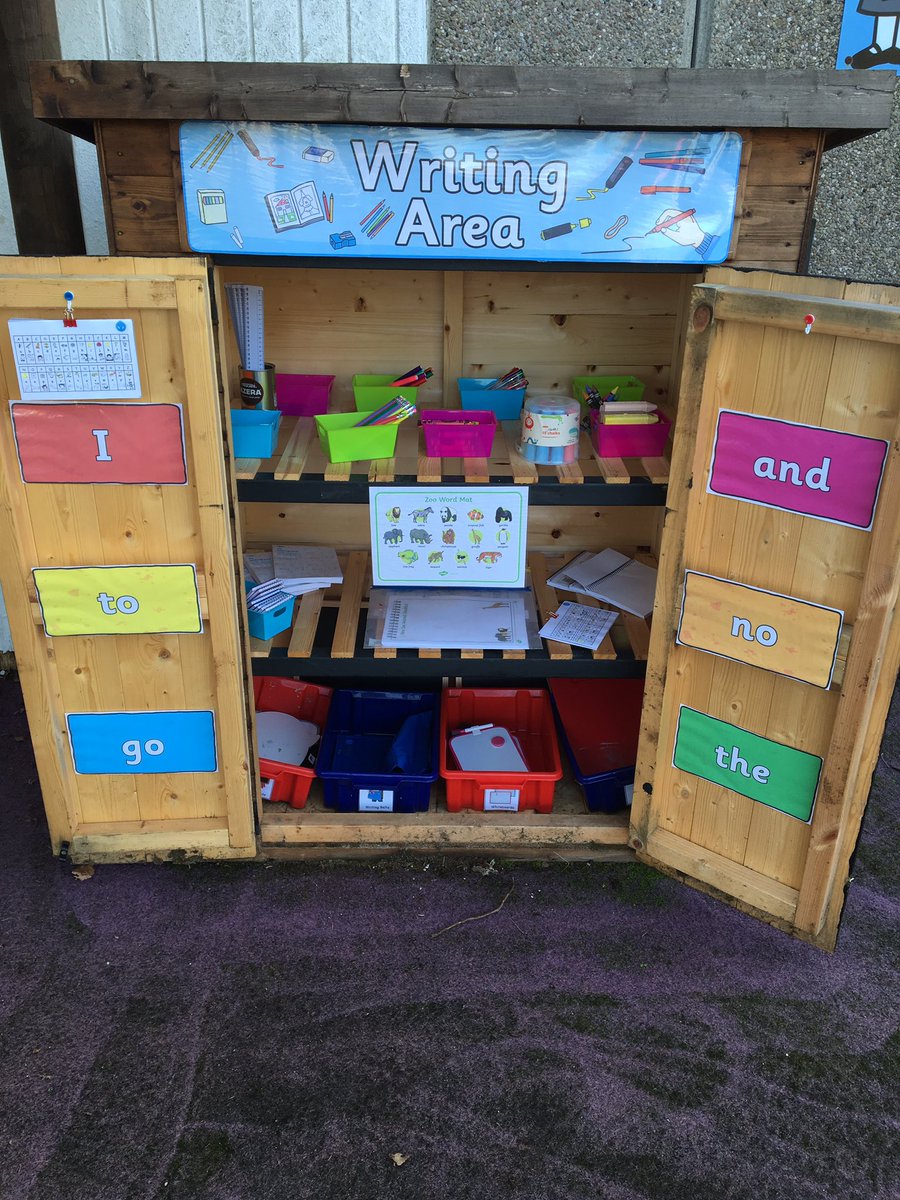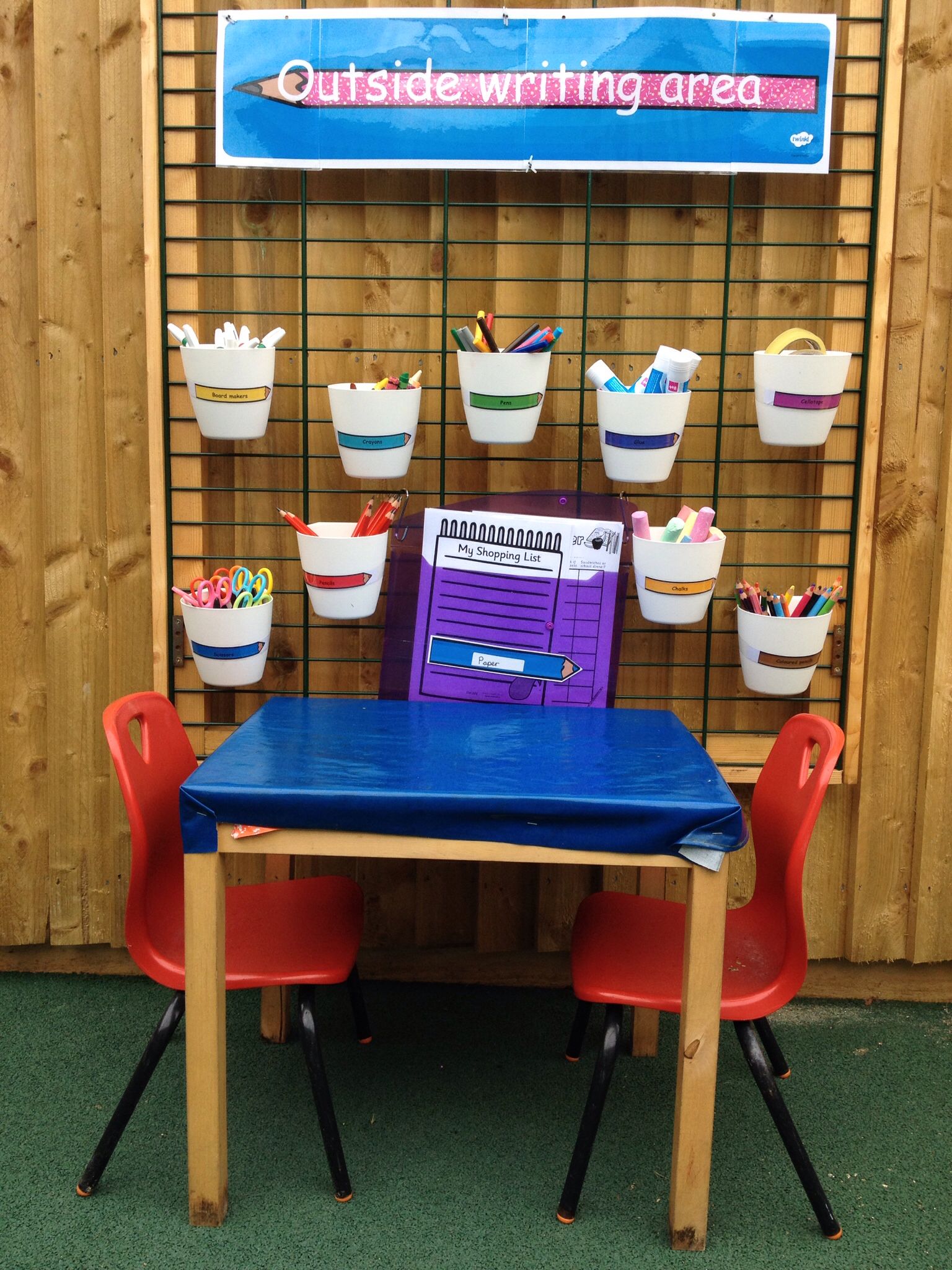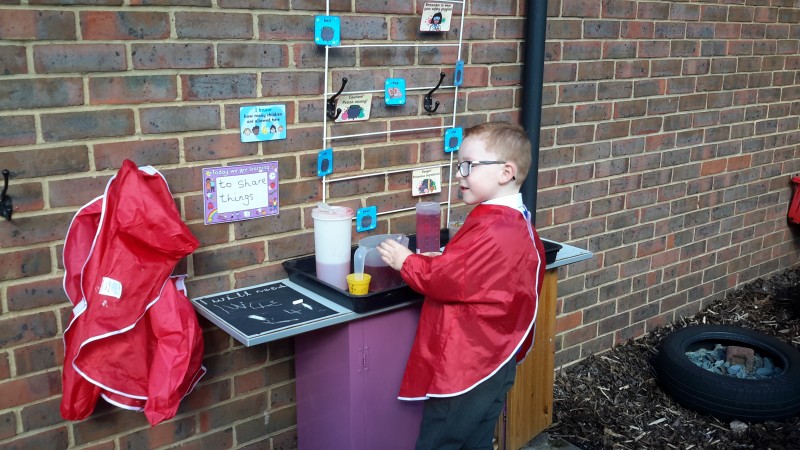EYFS Approach
Intent Implementation Impact.
Aims.
At Shaftesbury CE Primary School, we aim to provide the highest quality care and education for all our children thereby giving them a strong foundation for their future learning. We create a safe and happy environment with motivating and enjoyable learning experiences that enable children to become confident and independent. We value the individual child and work alongside parents and others to meet their needs and help every child to reach their full potential.
As outlined in the EYFS ‘Every child deserves the best possible start in life and the support that enables them to fulfil their potential. Children develop quickly in the early years and a child's experiences between birth and age five have a major impact on their future life chances.’
We adhere to the Statutory Framework of the EYFS and the four guiding principles that shape practice within Early Years settings.
*Every child is a unique child, who is constantly learning and can be resilient, capable, confident and self-assured
*Children learn to be strong and independent through positive relationships
*Children learn and develop well in enabling environments, in which their experiences respond to their individual needs and there is a strong partnership between practitioners and parents and/or carers
*Children develop and learn in different ways and at different rates
Vocabulary
Research has proven that a wider, academic vocabulary leads to greater success and life-chances for children.
Children in EYFS at Shaftesbury Primary will experience a vocabulary rich environment that exposes them and encourages them to use vocabulary designed to inspire and widen their learning.
Activities in and out of school will have a strong emphasis on vocabulary.
Inclusion & Equal Opportunities.
Children with special educational needs will be supported as appropriate to enable them to access the curriculum fully. This includes children that are more able and those with specific learning difficulties and disabilities. Individual Education Plans identify targets in specific areas of learning for those children who require additional support commensurate with the school’s Special Educational Needs Policy. The school’s SEN Co‐ordinator is responsible for providing additional information and advice to staff and parents and for arranging external intervention and support as necessary. In line with the school’s Equal Opportunities Policy, we will provide all children, regardless of ethnicity, culture, religion, home language, family background, learning difficulties, disabilities, gender or ability with equal access to all 7 aspects of school life to ensure that every child is valued as an individual. All staff are role models and are aware of the influence they have in promoting positive attitudes and use that influence to challenge stereotypical attitudes.
Safeguarding.
The school takes its child protection responsibilities very seriously. Any concerns, which the school has, will be noted and, if deemed necessary, will be reported to the relevant agency.
The safety of the child is always of paramount importance. The full Safeguarding Policy is available in school and online for parents to read if they wish.
Positive Behaviour.
The Early Years team follows the same Positive Behaviour Management policy and systems as the rest of the school. Please refer to Positive Behaviour Management Policy for more information.
Parents As Partners.
We strive to create and maintain a partnership with parents and carers as we recognise that together, we can have a significant impact on a child’s learning. We welcome and actively encourage parents to participate confidently in their child’s education and care and in wider school life.
Principles Into Practice.
As part of our practice we:
*Provide a balanced curriculum, based on the EYFS, across the seven areas of learning, using play as the vehicle for learning
*Promote equality of opportunity and anti-discriminatory practice. We provide early intervention for those children who require additional support
*Work in partnership with parents and within the wider context
*Plan challenging learning experiences, based on the individual child, informed by observation and assessment
*Provide opportunities for children to engage in activities that are adult-initiated and child-initiated, supported by the adult
*Provide a secure and safe learning environment indoors and out
Induction.
Reception parents are invited to workshops and an open evening in the summer term to provide them with essential information for the next academic year.
During the first week of the Autumn Term, prior to starting school, the following visits are conducted:
- Your Child’s Class Teacher and Learning Support Mentor will visit you and your child in their home environment for a “Home Visit”
- In the prior Summer Term, each child and their parents and carers will be invited to a Stay and Play Session so they can spend some time at Shaftesbury CE Primary School in order to familiarise themselves with both the staff and the Early Years environment
When children join the school in September the following procedures will apply in order that they can gradually adjust to their new surroundings:
- Children will start at different times during the first few weeks of term so that they have some one-to-one time with their new members of staff and their parent/carer on their first day
- When settling your child into Shaftesbury Primary you will be invited to work closely with your child’s teachers and all other staff to ensure your child feels safe and secure
- It is expected that you should set aside at least 2 half days for settling your child. Your child is free to stay for the full session as long as you and the Early years team agree that your child is well settled.
- The needs of individuals will be taken into consideration within this period, therefore, you may be asked to stay on the premises during the settling in period and you should only leave when you have reached an agreement with the staff that your child is well-settled
- The staff in the Early Years are happy to offer advice and support during this period
Curriculum.
We plan an exciting and challenging curriculum based on our observation of children’s needs, interests, and stages of development across the seven areas of learning to enable the children to achieve and exceed the early learning goals, based upon mini-themes and topics.
All seven areas of learning and development are important and inter-connected. Three areas are particularly crucial for igniting children's curiosity and enthusiasm for learning, and for building their capacity to learn, form relationships and thrive.
These three areas are the Prime areas:
Communication and Language
Physical Development
Personal, Social and Emotional Development
Children are also supported through the four Specific areas, through which the three prime areas are strengthened and applied.
The specific areas are:
Literacy
Mathematics
Understanding the World
Expressive Arts and Design
Children are provided with a range of rich, meaningful first-hand experiences in which children explore, think creatively and are active. We aim to develop and foster positive attitudes towards learning, confidence, communication and physical development.
Children are taught through whole group and small group sessions which increase as they progress through the EYFS with dedicated daily phonics sessions using ‘Read Write Inc’. Mathematics and Literacy are taught in daily sessions including shared reading and writing and are supported through topic writing.
The curriculum is delivered using a play-based approach as outlined by the EYFS. ‘Each area of learning and development must be implemented through planned, purposeful play and through a mix of adult-led and child-initiated activities’. We plan a balance between children having time and space to engage in their own child-initiated activities and those that are planned by the adults. During children’s play, staff interact to stretch and challenge children further.
In planning and guiding children's activities, practitioners reflect upon the different ways that children learn and reflect these in our practice. We create a stimulating environment to encourage children to free-flow between inside and out.
Weekly Timetable.
The timetable below reflects the team-based approach to teaching and learning in the Early Years at Shaftesbury CE Primary School.
An explanation of each element follows the diagram...
| Monday | Tuesday | Wednesday | Thursday | Friday | |
|---|---|---|---|---|---|
| 8.45 | Registration & Personalised Activities | ||||
| 9.00 | Daily Phonics Session | ||||
| 9.30 | Physical Activity | ||||
| 9.45 | Guided Learning Sessions | ||||
| 11.45 | Lunch | ||||
| 12.45 | Registration & Brief Guided Session | ||||
| 1.20 | Independent Observable Sessions | ||||
| 2.45 | Story time | Whole School Assembly | |||
| 3.05-3.15 | Daily Tidy and Preparation for Home Time | ||||
Registration & Personalised Activities
Children arrive at school and will have a specific task set up for them. This may be as simple as taking part in shared reading or may be more specific. For example they may be asked to complete some fine-motor activities.
Daily Phonics
Children will experience a daily, pacey phonics session - in different groups. The experience is a multi-sensory one pitched at the correct phase of phonics for the children in the group. (Stage not age).
Guided Sessions
These sessions will follow the independent activities of the previous afternoon. This will appear to be a more formal session than the afternoon one.
Teachers and Learning Support Mentors will be working with small groups of children to help children move on in their learning.
Children who are not working in a guided group will have a bespoke menu of learning (the Inspire Menu) they can choose from. It may not be the same for each child. Children who are working from the Inspire Menu are expected to ‘tick-off’ the work they have completed and they will know that this will be followed-up by staff later on.
As with the independent activities in the afternoon sessions - children will need to spend the early part of their year learning how to complete these tasks well.
Other sessions where a whole class approach is needed will take place during the Guided Sessions. PE, Music etc. will happen here.
Independent Observable Play/Work
The whole of the Early Years Village will be set up to make this session work.
Different activities will be set up inside and (especially) outside the classrooms.
Children will be able to take part in any of the activities set up. Staff will be stationed around the activities - making observations whilst challenging and questioning children whilst they play and explore.
It is important to note that all staff will be expected to observe and report on all children in the year group and not just children from their own class.
Notes and findings will need to be shared quickly and effectively to inform planning for further learning.
Children will need to spend the early part of their year learning to complete these activities well.
Whole School Assembly
This is an important session for the staff as it will allow them to share thoughts and some plans for the following week.
Children should be brought to the assembly by staff. The children will then be monitored by apprentices and other members of staff.
Transition.
Transitions are carefully planned for and time is given to ensure continuity of learning. Children from pre-school or nursery attend introductory sessions towards the end of the Summer Term to develop familiarity with the setting and practitioners. They receive a small booklet containing photos and complete an ‘All about me’ booklet. Where possible our reception class staff visit the children in their current setting and liaise with setting staff. In September children attend morning or afternoon sessions only for the first week and progress to full time after this period if parents and staff feel it is appropriate.
In the final term in Reception, the class teacher and Year 1 teacher liaise to discuss the individual children, their needs and analyse the assessment data to inform planning before the children spend time with their new Year 1 teacher in the final 2 weeks of term.
Learning Through Play.
At Shaftesbury CE Primary School, we do not make a distinction between work and play. Children learn through planned play activities and staff will decide when child‐initiated or adult‐led play activities would provide the most effective learning opportunities.
The Learning Environment.
The Classroom Environment
The Early Years classrooms are organised to allow children to explore and learn securely and safely.
There are areas where the children can be active, quiet, creative etc.
Each classroom has defined learning areas, where children are able to find and locate equipment and resources independently. The Foundation Stage has enclosed outdoor areas, and children are able to free‐flow between the indoor and outdoor spaces. Being outdoors offers the children opportunities for doing things in different ways and on different scales than when indoors. They are able to explore, use their senses, develop their language skills and be physically active. We plan activities and resources both inside and outside enabling the children to develop in all the areas of learning.
The Outdoor environment
Learning outside the classroom supports the development of healthy and active lifestyles by offering children opportunities for physical activity, freedom and movement, and promoting a sense of well‐being. It gives them contact with the natural world and offers them experiences that are unique to outdoors, such as direct contact with the weather and the seasons.
Outdoor play also supports children’s problem‐solving skills and nurtures their creativity, as well as providing rich opportunities for their developing imagination, inventiveness and resourcefulness. And, of course, the outdoor environment offers more space than indoors and therefore is particularly important to those children who learn best through active movement. Which is why at Shaftesbury CE Primary families are asked to provide their children with appropriate all‐purpose clothing (Wellington boots /rainproof macs with hoods) so we can learn outside whatever the weather!




Observation & Assessment.
As part of our daily practice, we observe and assess children’s development and learning to inform our future plans.
We record our observations in a variety of ways. Everyone is encouraged to contribute. Daily informal, as well as planned more formal discussions, take place.
Observations of children’s learning and achievements are collated using Tapestry software. These ongoing observations are used to inform the EYFS Profile/developmental matter bands. The child’s progress is reviewed every term/half term and is regularly discussed with parents. In the Autumn and Spring terms, parents are invited to attend a parents evening and receive a written report.
In the Summer term, we provide parents with a report based on the child’s progress in the profile against the 17 Early Learning Goals and in relation to the characteristics of Effective Learning. The parents are then given the opportunity to discuss these judgements with the class teacher.
Beyond the EYFS.
Our children will go on to be successful through KS1 and KS2 throughout primary school. The EYFS experience will set our children up to be the best that they can be in all of the following phases in their lives.
Our children will continue to be tracked and monitored so that lessons can be learned about the start they made in Early Years so that we can reflect and review our work.
Review.
It is the responsibility of the EYFS staff to follow this policy. The Senior Leadership Team will carry out monitoring on the EYFS as part of the whole school monitoring system.
Powered by w3.css